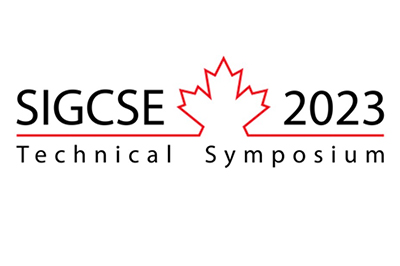SIGCSE 2023 Trip Report: A Chronicle of Ideas, Good and Bad

My first SIGCSE Technical Symposium was in 2013. I can’t understate how much has changed personally since then. At the time, I was just past tenure and promotion, just leaving my startup, and just beginning to realize I couldn’t run from my gender identity any longer. I had just starting computer science education research, doing all of the things a naive newcomer does: Asking the wrong questions, missing related work, and missing the forest for the trees. My students and I were doing interesting work mostly by virtue of our unconventional perspectives, not because we had a deep understanding of the community and its work.
I approached this year’s SIGCSE trying to take stock of what has changed, however small, mostly out of a need to stay motivated. So instead of a bunch of paper summaries, this is instead going to be a chronicle of noticing signals of progress and concerning constants.
On Wednesday I helped co-organize a pre-conference workshop on accessibility. The day drew about 30 attendees overall, most of whom viewed themselves as allies, and who had a wide range of interests from K-12, higher education, workplace issues, programming languages and tools, curriculum, and professional development.
Throughout the day, there was a whole spectrum of ideas, ranging from problematic to justice-centered. Here are some of the ones I found problematic:
- Blaming disabled students for “failing” to disclose their disabilities
- Avoiding conflict with powerful corporations
- Deficit mindsets about autism
- Looking to the APA for how to frame our work
- Encouraging access to broken systems instead of fixing systems
- Reducing disability to complete blindness
- Reducing equity to accommodation
- Well-meaning but misguided saviorism
And here are some of the ideas I was more fond of:
- Evolving our language past notions of “special” accommodations
- Resisting ableist systems by leveraging institutional power
- Expanding literacy about accessibility
- Getting the word “accessibility” into learning standards and guidelines
- Embracing the diversity of autistic experiences
- Intersections between accessibility, culture, and language inclusion
- Including chronic mental health challenges in disability
- Decoupling audio and visual representations with underlying structure
- Thinking critically about the power and peril of labels